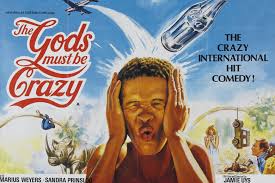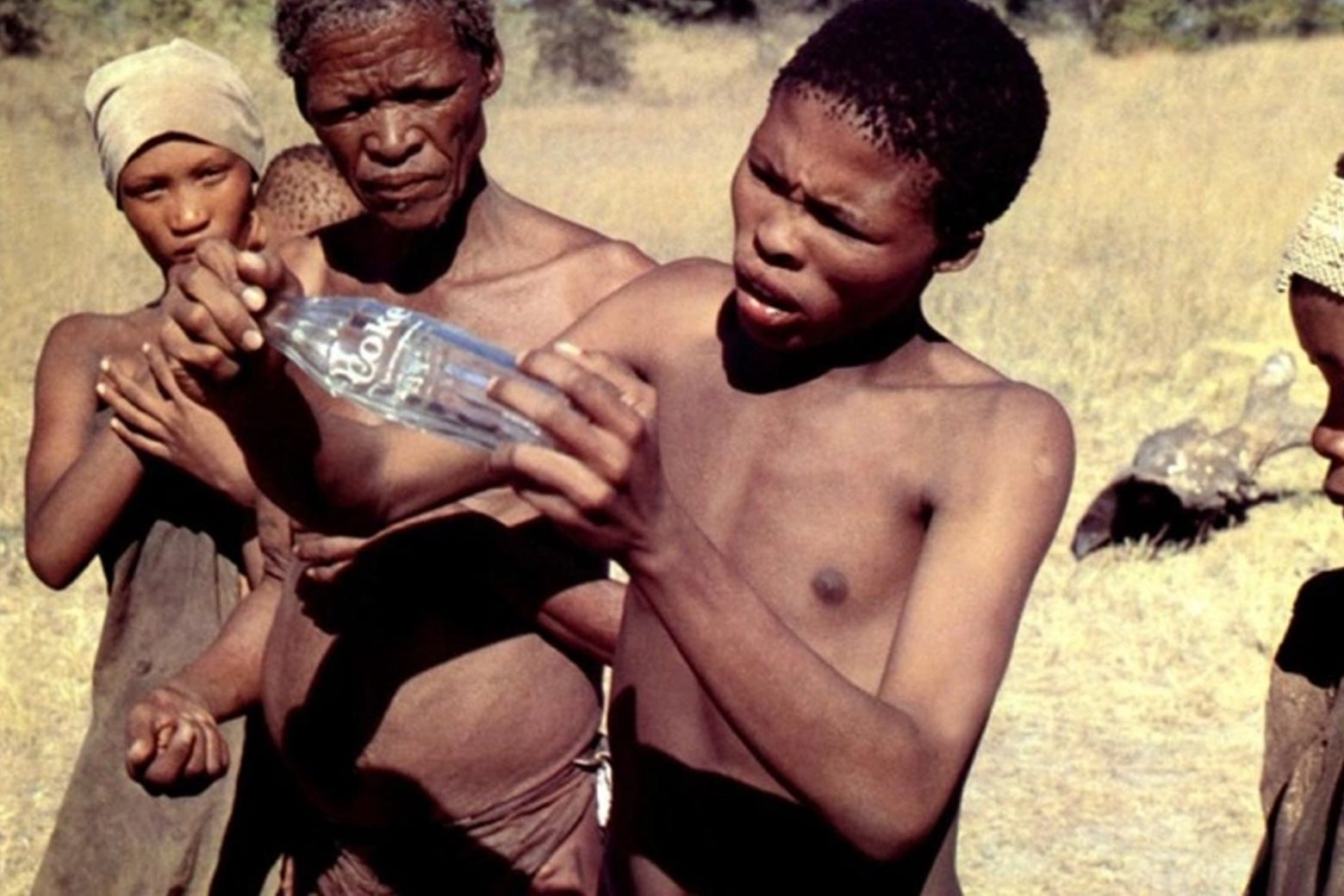The GODS must be crazy ( 1980 – 1989 )

“The Gods Must Be Crazy” (1980)
Overview: “The Gods Must Be Crazy” is a South African film directed by Jamie Uys, which gained international acclaim for its unique blend of comedy and social commentary. Released in 1980, the film is a satirical exploration of the impact of modernity on indigenous cultures, told through the lens of a comedic narrative.
Plot Summary: The film’s plot revolves around the discovery of a Coca-Cola bottle by a bushman named Xi from the Kalahari Desert. The bottle, dropped from an airplane, is seen as a gift from the gods by Xi and his tribe. However, its presence disrupts their harmonious life, leading to conflict and envy among the tribespeople. The narrative is split between the bushman’s quest to return the bottle to the gods and a parallel story involving a group of South African characters, including a klutzy scientist and a schoolteacher, whose lives intersect with Xi’s journey.
Strengths:
- Cultural Commentary: The film provides a humorous yet insightful commentary on the clash between traditional ways of life and modern technological society. It highlights how something as simple as a Coke bottle can symbolize the disruptive impact of modernity on an untouched culture.
- Visual and Physical Comedy: The film excels in visual and physical comedy, with slapstick humor and amusing scenarios. The comedic elements are engaging and effectively convey the absurdity of the situations without relying on dialogue.
- Unique Narrative Structure: The split narrative structure, with its blend of the bushman’s story and the South African subplot, offers a multifaceted perspective on the theme of cultural collision.
- Cultural Representation: While some critics argue that the film presents an oversimplified view of bushman culture, it does bring attention to the richness of their traditions and the impact of external influences.

Weaknesses:
- Stereotyping and Sensitivity Issues: The film has faced criticism for perpetuating stereotypes and for its portrayal of indigenous peoples. Some viewers find the depiction of bushmen as naive or simplistic problematic, reflecting a colonial mindset rather than an authentic representation.
- Pacing and Plot Development: The pacing can be uneven, with some scenes dragging or feeling repetitive. The plot sometimes relies on predictable comedic setups rather than deeper character development.
- Cultural Accuracy: While the film aims to showcase the bushman’s perspective, its portrayal may lack cultural accuracy, blending fact with fiction in a way that can be misleading or overly simplistic.
Conclusion: “The Gods Must Be Crazy” is a film that stands out for its original premise and comedic approach to exploring cultural differences. While it offers an entertaining and thought-provoking experience, it also invites discussion on its portrayal of indigenous cultures and its handling of sensitive themes. Its humor and unique narrative style have made it a memorable film, though it is essential to approach it with an understanding of its limitations and the context in which it was made.











